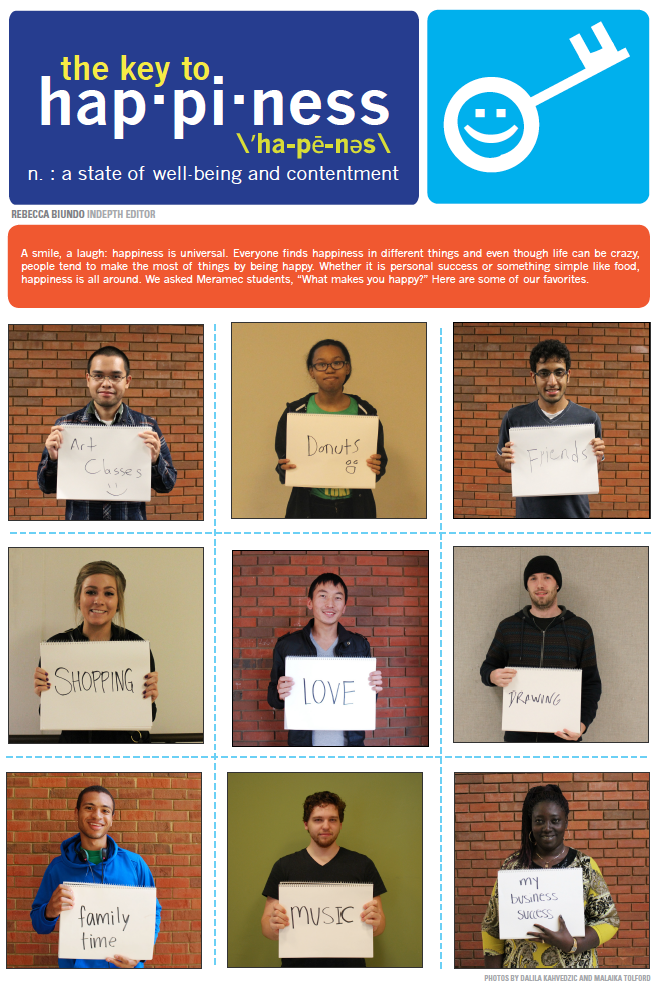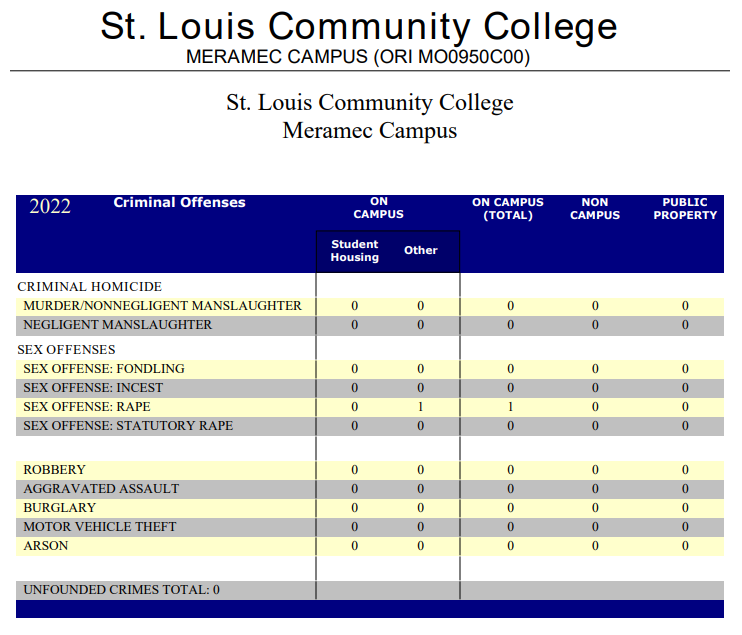What Makes Meramec Students Happy?
 By: REBECCA BIUNDO, MALAIKA TOLFORD, DALILA KAHVEDZIC
By: REBECCA BIUNDO, MALAIKA TOLFORD, DALILA KAHVEDZIC
Montage Staff
Psychology is perhaps the first academic discipline that comes to mind when one fathoms the vastly complicated subject of happiness. STLCC-Meramec psychology professor Dr. Vicki Ritts had much to say about the notion of studying happiness.
Ritts said there is indeed a field of happiness studies and that a big piece of the positive psychology movement is happiness.
Psychology divides happiness into two categories. There is the feeling of happiness, which is a brief emotion, and then there is life satisfaction, Ritts said.
“Life satisfaction is a little broader,” Ritts said. “There are a lot of things that contribute to that. Happiness is very complicated.”
As a social psychologist, Ritts attributes most of happiness to people.
“Humans are social animals. Your social group — almost everything we can think of that involves happiness is about people.”
Other disciplines have research in the field of happiness, too, such as biology, especially neuroscience, anthropology for cultural perspectives and history to add a temporal scope to the investigation.
However, the study of happiness is also found in the discipline of philosophy, another field in which the study of happiness is a huge part. Historically, philosophy also divides happiness into two categories. As explained by Meramec philosophy Professor Dr. Aaron Champene, there are competing answers to the question “What is happiness?”
“There’s the subjective sense, in which you call yourself happy. That breaks down into a number of different positions. Hedonsim, for example, where happiness is equated with pleasure,” Champene said. “The [ancient] Greek notion of well-being isn’t really a feeling at all, it’s more objective in a sense,” he said, referring to the notion that a person might not be the best judge of his or her own happiness.
Champene asked, “Do you want a life that is good to you? Or, do you want a life that is good for you?”
While students evaluate these questions, they may also ask the question: How do we rate the happiness of students?
Champene said in his experience, Meramec students seem relatively happy. He cited the importance of having friends, family and loved ones for happiness, as well as success.
“Being appreciated for the work that you’re doing. If that’s not essential to happiness, it comes pretty close,” Champene said.
Ritts said having enough time is key to student happiness and that reflection is key.
“You’re doing all the school stuff, but then you work, and then you try to have this other life,” Ritts said. “When you have so many irons in the fire, it’s hard to sit back and reflect.”











